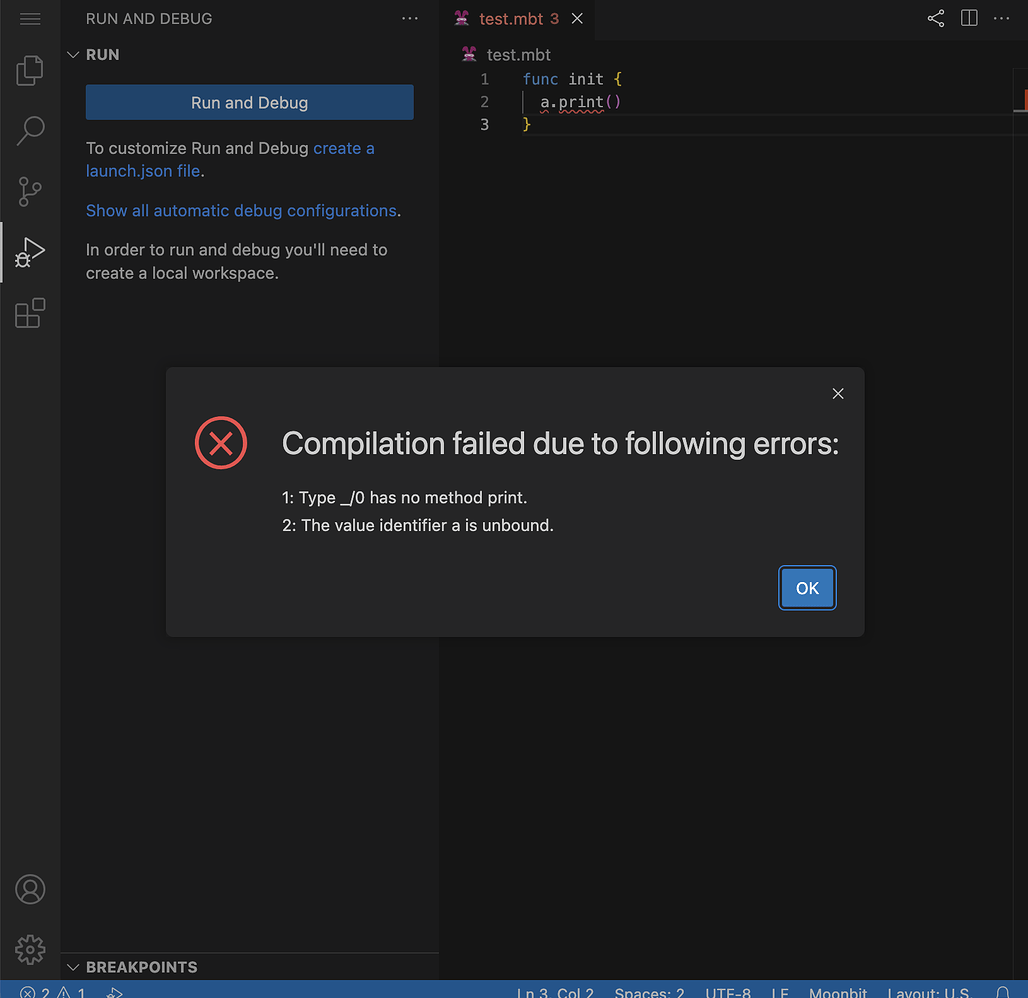weekly 2023-09-11
Moonbit was introduced to the public last month, and we received a lot of positive feedback. This post is intended to provide updates on the changes to Moonbit's language and build system over the past week.
Changes in Moonbit Language
1. Added built-in function println[T : Show](input : T)
Any type that has implemented the to_string method can be output by println, for example:
enum Tree[T]{
Node(Tree[T],Tree[T])
Leaf(T)
}
func to_string[T : Show](self : Tree[T]) -> String {
match self {
Node(l,r) => "Tree(\(l), \(r))"
Leaf(v) => "Leaf(\(v))"
}
}
func init {
let tree = Tree::Node(Leaf(1),Node(Leaf(2),Leaf(3)))
println(tree)
}
The above program outputs:
Tree(Leaf(1), Tree(Leaf(2), Leaf(3)))
Changes in MoonBit's IDE
1. IDE supports jumping to the source code of the built-in function definition
func init {
@builtin.println("")
}
For instance, the above code that calls the built-in function can jump to the function definition in the IDE.
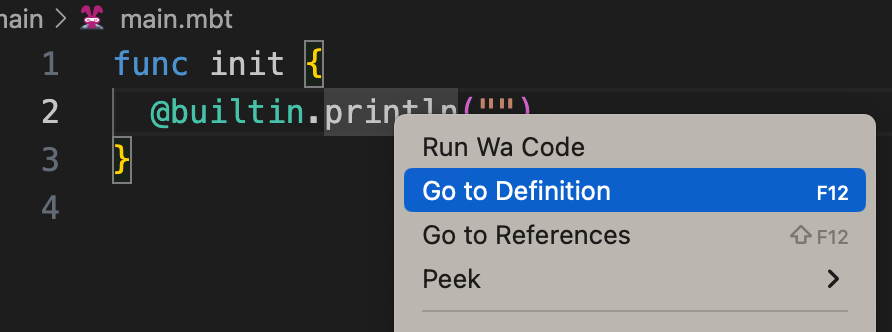
Result:
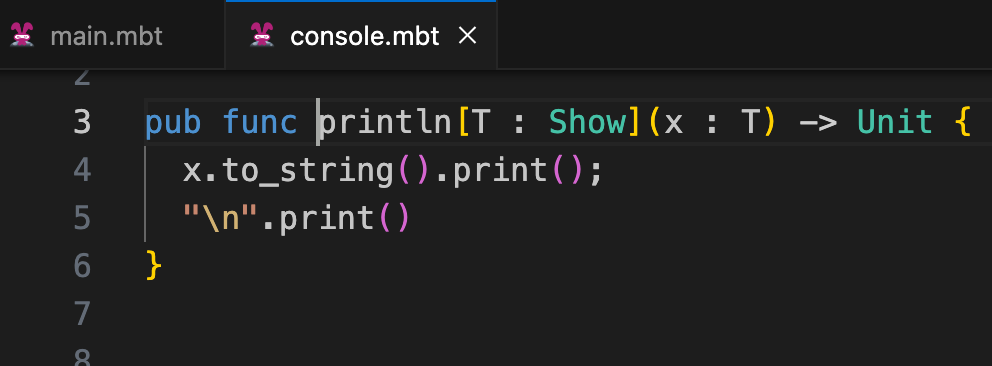
2. VS Code extension supports auto-completion of packages within the project
The latest VS Code extension supports auto-completion of packages within the project. Users only need to input @ on the keyboard to display the package list. After selecting the package to import, the corresponding moon.pkg will be automatically updated. For example:
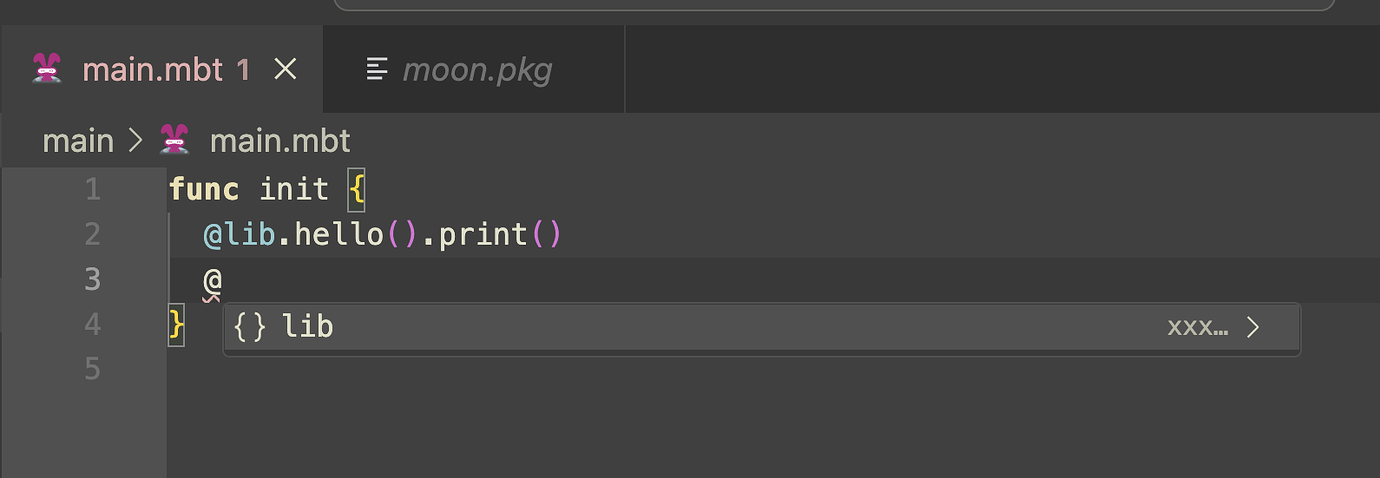
3. Hover Highlighting
When the mouse hovers over the code, the type definition shown now supports highlighting.
4. Hover displays custom types
The latest IDE can show the code type definition by hovering the mouse over a custom type.
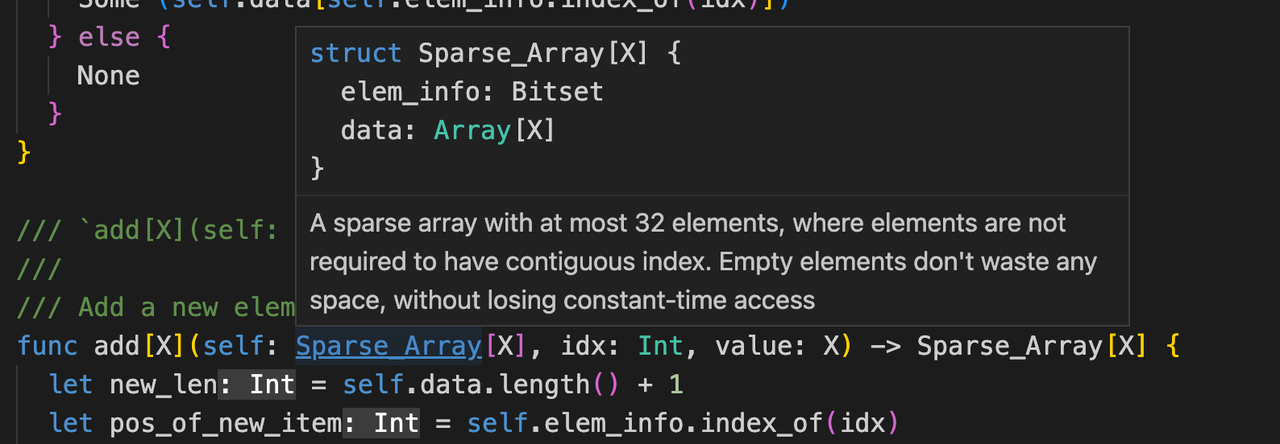
5. Only code that has passed checks can trigger compilation
Now, only the code that has passed syntax checks and type checks can trigger compilation and execution, such as:
func init {
a.print()
}
Executing Run on the above code will show the following prompt:
